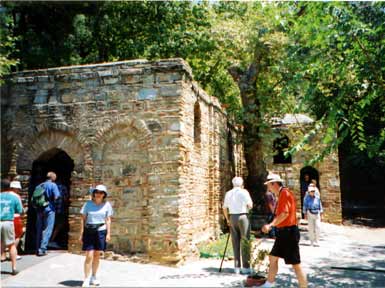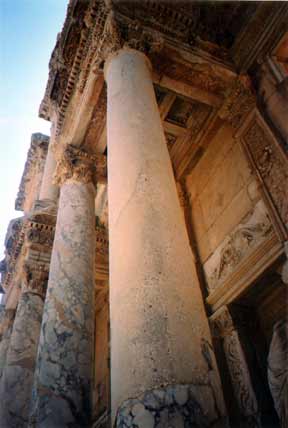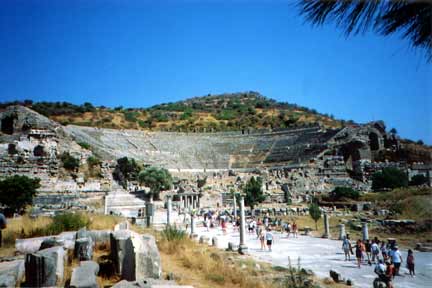Kusadasi (which Billy Vader insisted on calling "Kiss-a-tushy") is an old port town in Turkey, gateway to several extremely religious sites. Our tour took us to several of these.
The most powerful was the smallest. According to scripture, after the crucifixion, John the Evangelist rushed Jesus' mother Mary out of Jerusalem to safety near Ephesus. Her humble home still stands as a shrine, high on a hill protected from, well, everyone. It's a simple dwelling, with a kitchen and common room. One passes through, shepherded by sisters of a local order and bade to cover shoulders and knees out of respect with shawls they provide. Though the house is small and very crowded it is unspeakably powerful, carrying a presence unlike anywhere else I've been. Jen felt her Grandmother Caroline's presence, a devout Catholic and the recently departed matriarch of the family.
We saw the ancient basilica of St. John, now a foundation and a few walls, the temple having been destroyed by earthquake. The temple had been built in the shape of the cross, much like the cathedrals we visited in England. The bones of St. John himself had rested there until the Crusades, when they were hauled off. It was an interesting experience to visit a country that found itself on the wrong end of King Richard's conquests. After Mary's home, Jen could not help but find the basilica's ruins to be "not religious enough." Our experience of Turkish vendors began here. One such weathered codger sidled up, holding his palm close to his chest. His eyes dart sideways and he breathes, awestruck: "Old coin?" "Um, nope." Sighing: "Oh my God, no old coin."
Above all, we landed in Kusadasi to visit the ancient city of Ephesus (as in 'St. Paul's

Mary's house; you can see most all of it from here.

